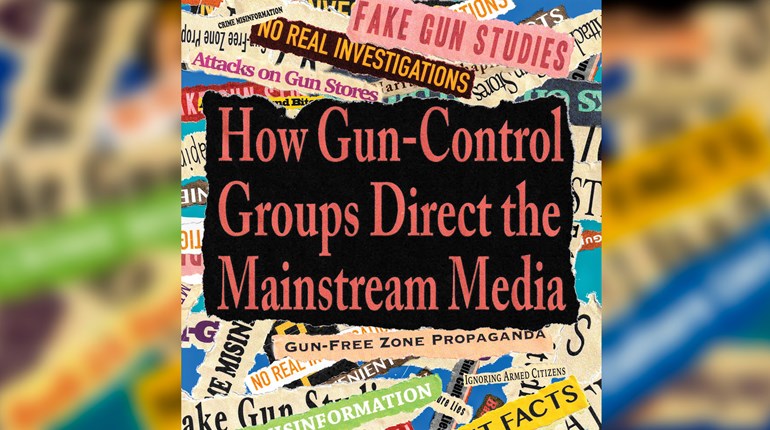
If you’re in the half of the country that allows voter initiatives (26 states allow proposed legislation to be added to a ballot if a minimum number of registered voters sign a petition, according to Ballotpedia), please read the fine print before you check a box on your ballot in this fall’s election.
On Nov. 8, for example, the Maine Background Checks for Gun Sales Initiative, also known as Question 3, will read:
- A “yes” vote supports requiring background checks before a gun sale or transfer between people who are not licensed firearm dealers.
- A “no” vote opposes requiring background checks for gun sales.
A voter initiative, like legislation passed by elected representatives, can enhance your rights or take them away.Someone who hasn’t looked into what so-called “universal” background check laws really do (as always, “universal” is in quotes because criminals by definition won’t submit themselves to this law, so it isn’t really universal) might think this is commonsensical, even innocuous, legislation. They might not know that such laws criminalize the normal and otherwise law-abiding behavior of average Americans or that research shows such laws won’t stop criminals from getting guns.
Now, let’s leave those important realizations for a moment, as some background is in order.
A voter initiative, like legislation passed by elected representatives, can enhance your rights or take them away. They are different than the normal legislative process in that they are direct and therefore bypass many of the legislative checks and balances; they are simply enacted by popular opinion. On the negative side, this can make them susceptible to the influence of those who have pockets deep enough to shape public opinion. For this reason, billionaire and former NYC Mayor Michael Bloomberg has been spending millions on voter initiatives written to restrict Second Amendment-protected rights.
In truth, Bloomberg has been having trouble getting majorities of elected representatives to pass the Second Amendment restrictions he wants, so he has been trying, with some success, to shape public opinion through misleading advocacy campaigns designed to convince majorities of people to unwittingly vote away their freedom.
The possibility that voter initiatives could be used in this way actually frightened the founders of this republic. They worried that, like a legislature in the throes of a crisis, voters might heedlessly damage American freedom. To define this problem, John Adams used the phrase “tyranny of the majority” in his book, A Defence of the Constitutions of Government of the United States of America, Vol. 3, in 1788. Also, Alexis de Tocqueville titled a section of his 1835 classic Democracy in America “Tyranny of the Majority” to point out that democratic rule that “bases its claim to rule upon numbers, not upon rightness or excellence” can harm the peoples’ freedom.
The worry that a majority, maybe driven by fear or ignorance, might strip away the rights of a minority is actually something that bills of rights, such as the U.S. Bill of Rights, have long been used to negate.This isn’t to say that the voter initiative process is bad, just that it is a process that can be hijacked by someone with billions of dollars and an agenda designed to hoodwink the general public.
So voter initiatives obviously didn’t come out of the American founding era. It would be more than a century before they became commonplace, during America’s Progressive Era (basically, 1890 to 1920). South Dakota adopted a system for voter initiatives in 1898, and Oregon followed in 1902. The “Oregon System,” as it became known, soon spread to other states during this period.
(As a brief aside, it is worth noting that it is hypocritical for liberal-progressives to condemn the U.S. Supreme Court’s 2010 Citizens United v. FEC ruling, which tossed out parts of the McCain-Feingold Act for inhibiting the First Amendment rights of some near elections, while at the same time looking the other way when liberal-progressive gun-ban advocates like Bloomberg spend millions to convince voters to pass certain rights-killing legislation.)
This isn’t to say that the voter initiative process is bad, just that it is a process that can be hijacked by someone with billions of dollars and an agenda designed to hoodwink the general public. This is especially dangerous when a majority of so-called “mainstream” journalists pick one side over the other (which is what often happens with the gun-rights versus gun-control debate in America). Without the media objectively shedding light on an issue, a person like Bloomberg can get away with a lot.
Given this situation, voters must be skeptical about those little synopses so cleverly written on ballots to explain the results of the initiatives.
Editor’s Note: Next week, we’ll take a deeper look at what gun-related voter initiatives are now scheduled to be on ballots this November.

































